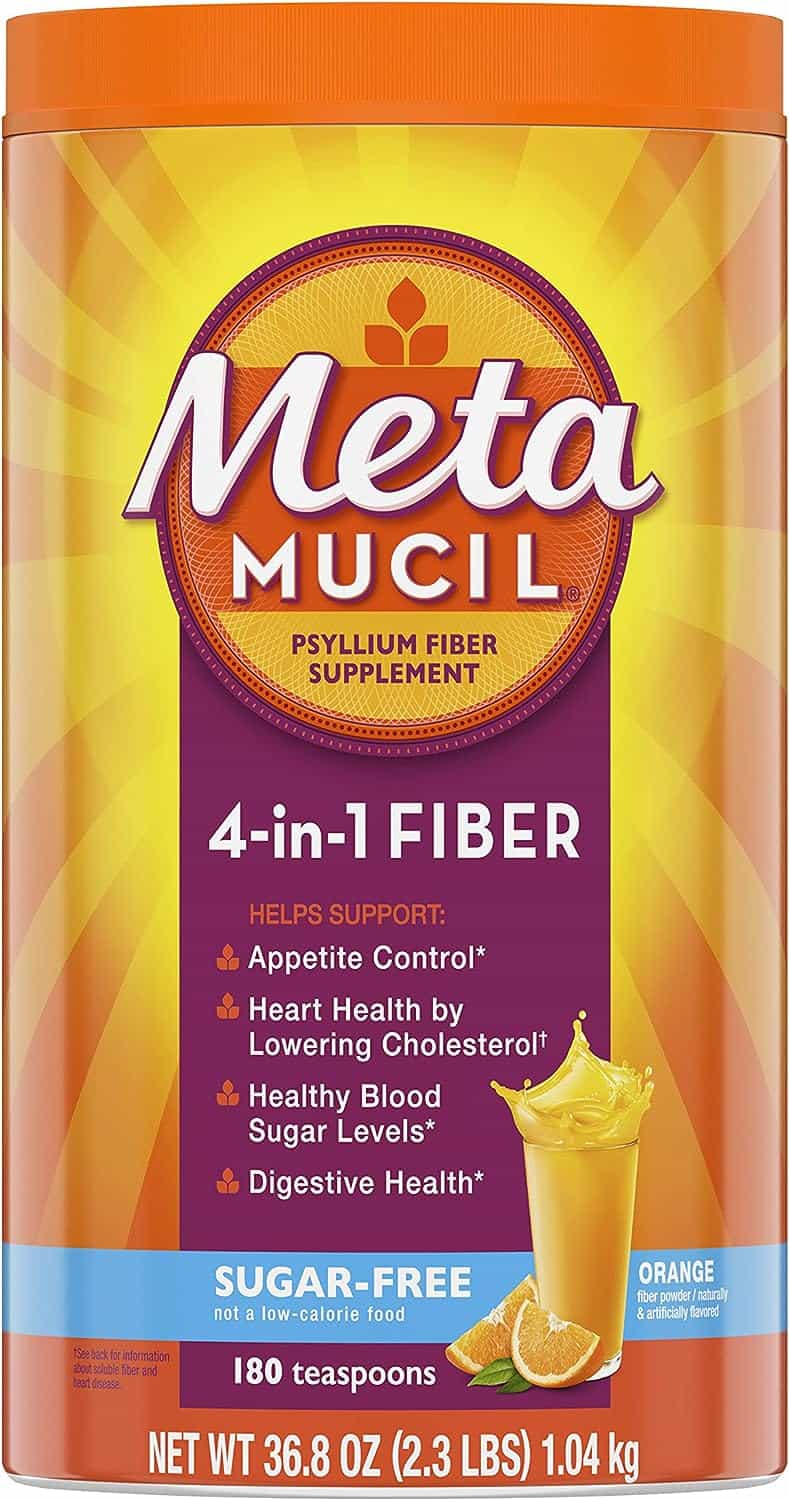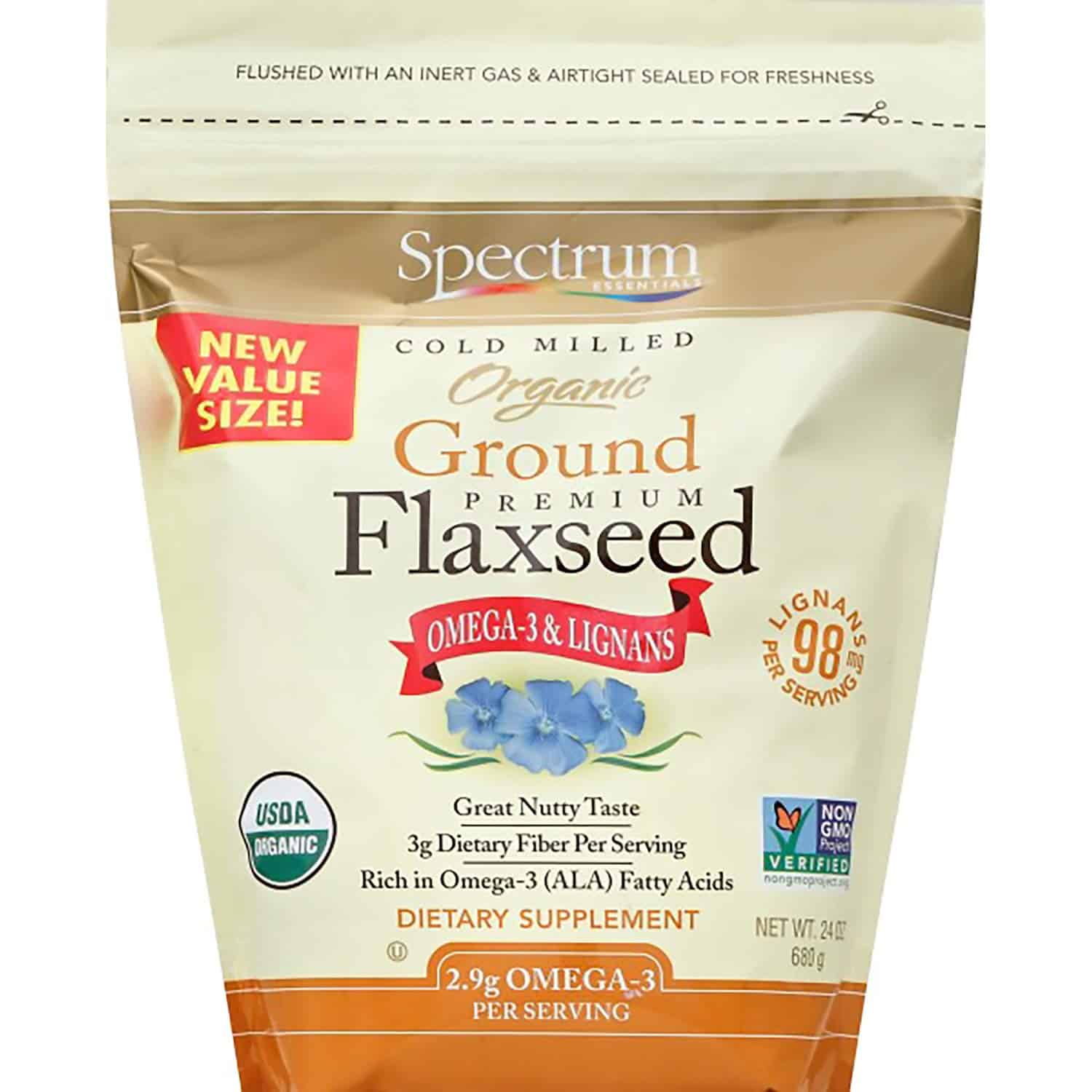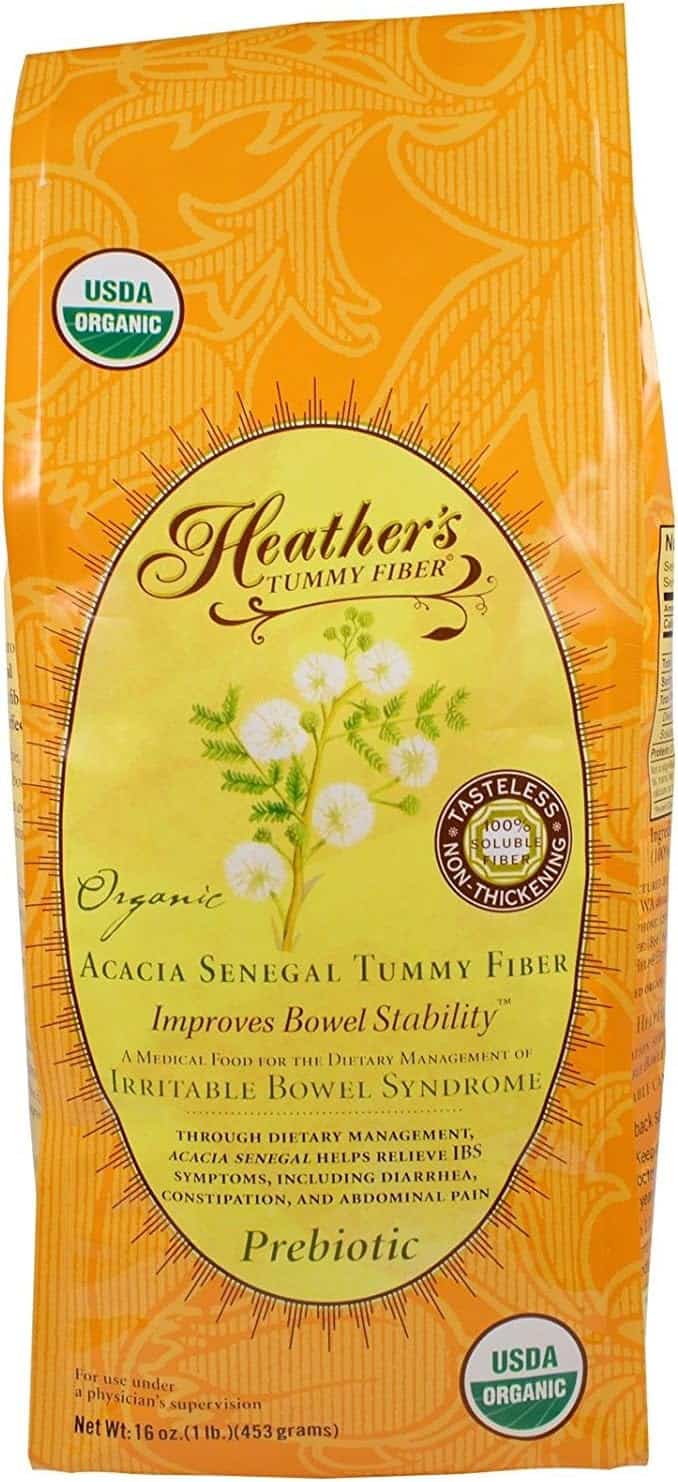Fiber for digestion is a key component in keeping your digestive system regular. If you feel like your digestion is off, then adding more fiber may be the answer to feeling some relief.
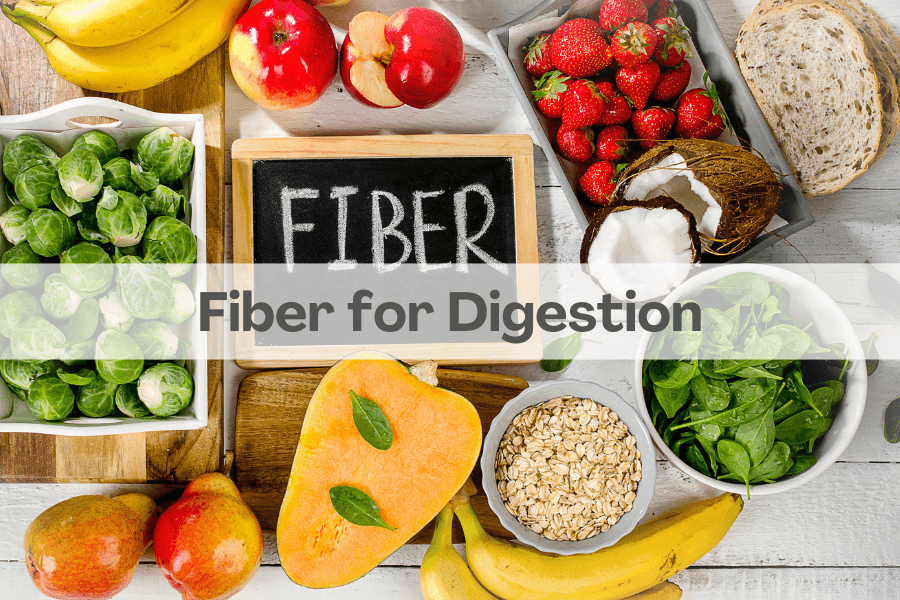
Fiber is essential for promoting healthy gut bacteria and helping break down food as it moves through the digestive tract.
In this blog post, we'll discuss why fiber can be so beneficial for proper digestion and five tell-tale signs that indicate you probably need more fiber in your diet. Read on to learn more!
This post is all about Fiber for Digestion.
Please note that we are not medical professionals and this post contains general information that should not replace the advice of your doctor or medical professional.
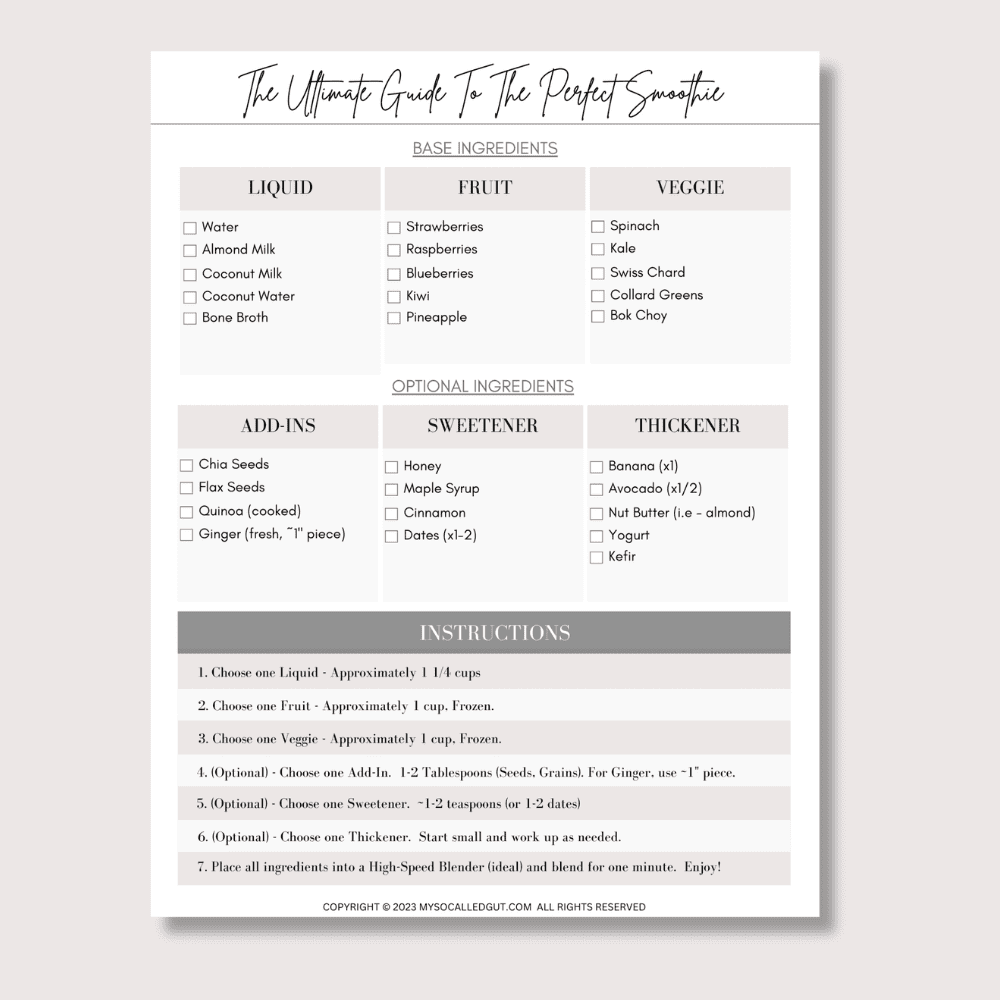

Fiber for Digestion
What is Fiber?
Fiber is a type of carbohydrate that acts as an essential part of the human diet. It is found in plants such as fruits, vegetables, nuts, and grains, and cannot be broken down by digestive enzymes.
Despite this, fiber plays an important role in digestion: it adds bulk to our stools and helps them move smoothly through the digestive system, promoting regularity and reducing constipation. Additionally, fiber is known to bind fat molecules within the intestines, preventing their reabsorption into circulation and thus reducing levels of bad cholesterol.
It also supports microbial populations within the gut, promoting an environment that can help boost immunity. For overall health benefits, getting enough fiber through diet is paramount.
Types of Fiber
There are two main types of fiber – soluble and insoluble.
Soluble fiber has a gel-like consistency when dissolved in water and helps to slow down digestion. This makes you feel fuller for longer and is beneficial for gut health. It's found in oats, barley, flaxseeds, beans, apples, citrus fruits and more.
Insoluble fiber does not dissolve in water but helps to move food through the digestive tract faster. It also adds bulk to stools and can help relieve constipation as well as other associated digestive issues. You can find it in wheat bran, nuts, seeds, potatoes, and green beans.
Eating a healthy diet with a good balance of both is the best way to ensure that you get the right amount of fiber for digestion and overall health.
5 Signs that You Need More Fiber
Eating fiber is essential for digestion, and if you aren’t getting enough of it then you may start to notice some physical changes.
It is currently recommended that the average daily fiber intake ranges from 25-30 grams of fiber per day for adults, and for children, it can vary according to their age (but ranges from 19 grams for a 1-3-year-old to 26 grams for 14-19-year-old kids).
And shockingly most people in the U.S. are NOT getting enough fiber. Nearly 95% of the U.S. adult population is lacking their proper daily fiber intake.
Think that you might be lacking in the fiber department? Well, here are five key indications that can tell you when it’s time to pump up your daily fiber intake.
1. You are Still Hungry After You Eat
If your stomach starts "growling" more than usual all throughout the day and you feel the need to snack fairly often, then listen up! Adding fiber to your diet might be the answer.
Increasing fiber in your diet can help you feel full longer throughout the day. The fiber will add volume to your meals and help you feel full longer (and without the added calories).
2. You Feel Tired
Fatigue and a lack of energy can also result from inadequate fiber intake. This is often because when you don't get enough fiber then you aren't absorbing as many nutrients as your body needs to properly function. This will lead to increased fatigue and feeling of tiredness.
3. You Have Chronic Diarrhea or Constipation
Yes, that's right...both chronic diarrhea and constipation can be a result of not getting enough fiber in your diet. That is because fiber adds volume to the stool and keeps the digestive tract moving along.
4. You Have High Cholesterol
Fiber plays a crucial role in lowering your cholesterol. It does this by reducing the amount of LDL (or "bad") cholesterol that is absorbed into your bloodstream. Therefore, not eating enough fiber can put you at risk for high cholesterol.
5. You Have an Unexplained Weight Gain
Another top benefit of fiber is that it adds volume to your meals and without the added calories. Therefore you can eat more food and consume fewer calories.
In addition, a study done by Georgia State University shows possible links to healthy gut bacteria and weight loss. This study found that eating more fiber encourages the growth of healthy gut bacteria and can prevent metabolic syndrome (which is a condition associated with obesity, hypertension, and more).
How to Increase Your Fiber Intake
Eating foods high in fiber can bring plenty of health benefits, with improved digestion being one of them.
Increasing your daily intake of fiber is fairly easy and doesn’t need to be an overwhelming change in your current diet. You can work towards increasing your fiber either through adding high-fiber foods to your diet (recommended!) or through taking fiber supplements.
High Fiber Foods
Fiber plays an essential role in our digestion. It helps pass food that we consume more easily through the intestines and aids in regulating our digestive processes.
Thankfully, many everyday foods that we can easily get our hands on are full of fiber. Specifically, beans, peas, lentils, whole grains such as oatmeal and quinoa, artichokes, raspberries, and pears contain some of the highest amounts. Additionally, items like avocados, almonds, and chia seeds are also great sources of fiber.
Eating these foods regularly can help us maintain a healthy diet and keep our digestive system running smoothly. Start small by swapping out snacks such as chips or crackers for high-fiber items like popcorn, nuts, or seeds. Also, try adding more leafy greens, lentils, and quinoa to your meals throughout the week.
With a few simple changes, you can easily increase your intake of fiber each day and get all of the health benefits as a result.
Fiber Supplements
When it comes to adding fiber to your diet, certain fiber supplements provide numerous benefits.
There are several types out on the market today and it might be hard to decide which one is the best for you. As always, it is best to speak to your doctor or nutritionist about which supplemental fiber is best for you.
Psyllium Husk
Psyllium husk fiber is an excellent source of soluble fiber that aids in digestion and helps regulate blood sugar levels. It is often used as a gentle laxative that helps add bulk to your stools.
Probably one of the most known fiber brands that contain psyllium husk is Metamucil. You can buy Metamucil rather easily on Amazon or at your local drug store.
Ground Flaxseed
Flaxseed is commonly used to increase your digestive health, specifically helping to relieve constipation. Not only is flaxseed high in fiber but it also contains omega-3 fatty acids, both of which are super beneficial for your gut.
Flaxseed can also be very easy to purchase, as it is at most grocery stores (often in the bulk section) or even on Amazon. I find that this ground flaxseed on Amazon is of a particularly good value for the money!
Acacia
Acacia powder (also known as Gum Arabic) is a sticky substance that comes from the sap of the Acacia tree. It is a gentle, soluble fiber that is often used to help relief some of the symptoms associated with IBS (Irritable Bowel Syndrome).

I first discovered Acacia when I purchased Heather's Tummy Fiber brand of soluble fiber. When I first started taking it I noticed pretty significant improvements in my digestion. I now tend to rotate between a few different types of fiber, with this one still very much in the rotation.
Chia Seeds
Chia seeds are another excellent source of fiber that should be in your daily routine. They have so many benefits to them besides being a great source of fiber. They are also loaded with omega-3 fatty acids, protein, and other macro nutrients.
I almost always buy this brand of chia seeds on Amazon. The container is HUGE and lasts me forever! Such a great value for your money.
There are so many ways to add chia seeds to your daily meals. Check out this easy Overnight Oats recipe for one idea on using chia seeds in a recipe!
To sum up, fiber is a desirable addition to your diet in order to keep your digestive system healthy and regular. With so many potential benefits that come with consuming more fiber, it can definitely be a rewarding change to make.
Whether you've been feeling sluggish after meals or experiencing bouts of constipation, chances are adding more fiber into your diet could make all the difference. Keep an eye out for the five tell-tale signs we discussed and consult your healthcare provider if you suspect something might be off.
With small changes, like swapping sugary cereals for oatmeal or snacking on raw vegetables instead of chips, incorporating more fiber in your diet doesn’t have to be hard! So don’t wait any longer...head to the grocery store and load up on lots of high-fiber foods today.
